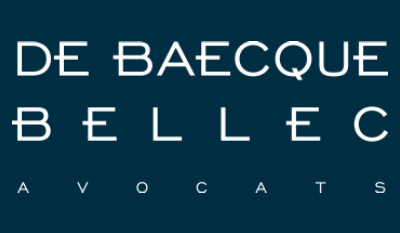Trademark coexistence agreement: conditions of validity
The Paris Court of Appeal has ruled on the respect of a coexistence agreement between trademarks. Such an agreement has the value of a transaction within the meaning of article 2044 of the Civil Code, even if it is formalized by a simple exchange of letters.
Legal nature of a coexistence agreement
The owner of the trademark LIVIA registered for swimwear and ready-to-wear clothing gives notice to the applicant of the trademark LIVY for lingerie to withdraw its registration. After various exchanges, the parties agree on the coexistence of the two names. The condition is that the LIVY mark must always be accompanied by a distinctive suffix or prefix when used on swimwear, in order to differentiate it from the earlier LIVIA mark.
In the subsequent dispute, the owner of the LIVIA mark criticized the other party for not checking whether their attorney had the authority to bind them. The court of appeal answered that a commitment is possible on the basis of the apparent mandate. The lawyer, a regular counsel, presented herself as representing the interests of the owner of the trademark LIVIA. Therefore, the other party did not have to demand additional proof.
The Court of Appeals held in its May 28, 2021 decision that a simple exchange of official letters from the parties’ counsel constitutes a transaction within the meaning of Article 2044 of the Civil Code: “A transaction is a contract by which the parties, by mutual concessions, terminate a dispute that has arisen, or prevent a dispute from arising. This contract must be in writing.”
In addition, the appellant invokes the potestative nature of the agreement on the grounds that the suffix or prefix is not defined. The Paris Court of Appeal also rejected this argument. The realization of the commitment does not depend exclusively on the will of one party. It is subject to a posteriori review by the judge on the basis of objective circumstances.
Compliance with a trademark coexistence agreement
The LIVYSTONE trademark is affixed to swimwear. The judges were able to verify that the product labels, the pockets and the cards accompanying the swimsuits are all offered under the LIVYSTONE trademark. This constitutes use as a trademark and not merely as a reference.
The addition of the suffix -STONE forms a new word for the famous explorer. It is phonetically and semantically different from the previous mark LIVIA.
Finally, the distribution in LIVY stores, whose existence is mentioned in the agreement, cannot be questioned. This is a distinction between the company name, the sign and the trademark. On the livy.com website, the swimwear appears in the LIVYSTONE category, thus respecting the trademark coexistence agreement. The appellant company cannot blame the trademark owner for the use of its trade name LIVY by third-party websites in connection with swimwear.
The owner of the trademark LIVIA therefore fails to demonstrate any violation of the trademark coexistence agreement, the validity of which is recognized.

Stephane BELLEC
Trademark attorney
Stéphane Bellec, Attorney, Partner Cabinet De Baecque Bellec
Intellectual property attorney
Tél. + 33 (0) 1 53 29 90 00
